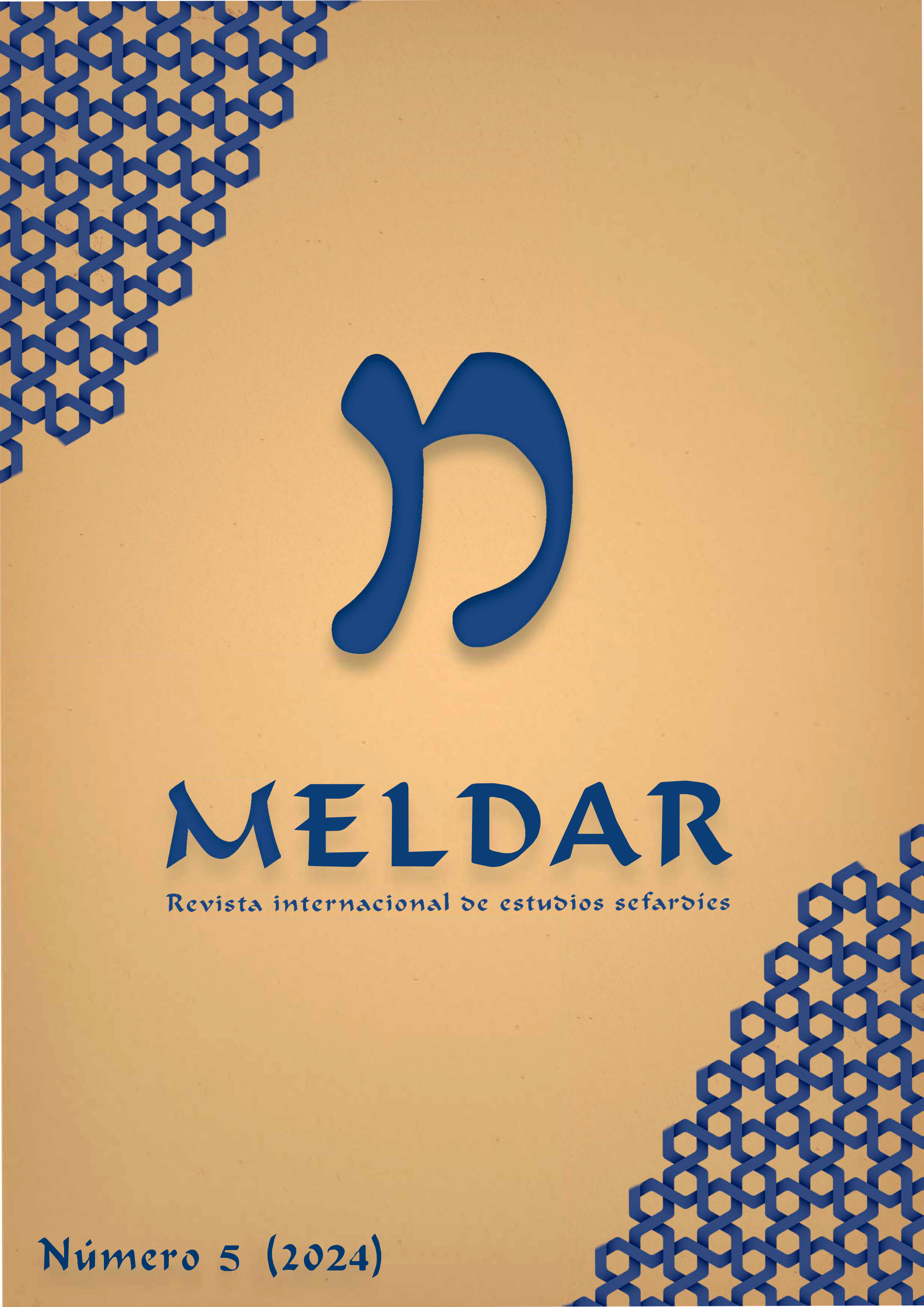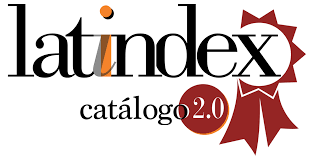Las traducciones literarias contemporáneas al judeoespañol como un territorio de la lengua sefardí en su modo postvernáculo
DOI:
https://doi.org/10.46661/meldar.9562Palabras clave:
literatura sefardí, traducción literaria, cultura postvernácula, lengua amenazada, texto como «territorio».Resumen
Este artículo presenta las traducciones contemporáneas al judeoespañol en el contexto de la actual situación sociolingüística y sociocultural de la lengua sefardí, que está considerada en peligro de extinción y en las últimas décadas ha pasado a su fase postvernácula. Aunque después del Holocausto apenas se escribió literatura en ella, con excepción de la poesía, en el siglo XXI algunos autores han advertido que la traducción literaria puede contribuir a la preservación de la lengua. Mi análisis de diferentes elementos de las traducciones literarias publicadas en forma de libros demuestra que la traducción al judeoespañol pertenece al repertorio de prácticas postvernáculas. Además, expone que hoy en día, cuando no existe una zona geográfica en la que se siga hablando judeoespañol, la literatura traducida se convierte es una parte importante del «territorio» de la lengua que se cruza con otros «territorios». Todos ellos funcionan como puntos de referencia en la construcción de la identidad sefardí basada en la relación con su lengua de la herencia.
Descargas
Citas
Álvarez López, Cristóbal José. (2020). Flores de otras guertas: las traducciones del español al judeoespañol en la revista Aki Yerushalayim. In Gerardo Beltrán, Aleksandra Jackiewicz, Katarzyna Popek-Bernat and Edyta Waluch de la Torre (eds.), La traducción literaria en el contexto de las lenguas ibéricas (pp. 142-157). Warszawa: Wydawnictwo Uniwersytetu Warszawskiego. https://doi.org/10.31338/uw.9788323542766.pp.142-157
Amado Bortnick, Rachel. (no date). La Odisea de Omero en Ladino. eSefarad. Noticias del Mundo Sefaradí. Retrieved from https://esefarad.com/en-vista-de-rachel-la-odisea-de-omero-en-ladino/
August-Zarębska, Agnieszka. (2013). The Representations of kurtijo and Their Function in Contemporary Judeo-Spanish Poetry. In Andrzej Kątny, Izabela Olszewska and Aleksandra Twardowska (eds.), Ashkenazim and Sephardim: A European Perspective (pp. 245-268). Frankfurt am Main: Peter Lang.
August-Zarębska, Agnieszka. (2024). Contemporary Judeo-Spanish Poetry: Language in Search of a Modern Form. Studia Judaica, 54.
August-Zarębska, Agnieszka and Paprocka, Natalia. (2021). Les enjeux de la traduction littéraire en langue périphérique et post-vernaculaire. Le cas du judéo-espagnol. Romanica Wratislaviensia, 68, 9-26. https://doi.org/10.19195/0557-2665.68.2
Batchelor, Kathryn. (2018). Translation and Paratexts. London, New York: Routlege. https://doi.org/10.4324/9781351110112
Bauman, Zygmunt. (2011). Ponowoczesne wzory osobowe. Studia Socjologiczne, 200, 435-458.
Borovaya, Olga. (2012). Modern Ladino Culture. Press, Belles Lettres, and Theater in the Late Ottoman Empire. Bloomington and Indianapolis: Indiana University Press.
Brink-Danan, Marcy. (2011). The meaning of Ladino: The semiotics of an online speech community. Language & Communication, 31, 107-118. https://doi.org/10.1016/j.langcom.2010.08.003
Bunis, David M. (2011). Native Designations of Judezmo as a «Jewish Language». In Yosef Tobi and Dennis Kurzon (eds.), Hikrei Ma'arav u-Mizrah. Studies in Language, Literature and History Presented to Joseph Chetrit (pp. 41-81). Jerusalem: Carmel Publishing.
Bunis, David M. (2016). Twenty-First-Century Talk about Judezmo on the Ladinokomunita Website. In Joshua Miller and Anita Norich (eds.), Languages of Modern Jewish Cultures. Comparative Perspective (pp. 321-360). Ann Arbor: University of Michigan Press.
Bunis, David M. (2018). Judezmo (Ladino / Judeo-Spanish): a Historical and Sociolinguistic Portrait. In Benjamin Hary and Sarah Bunin Benor (eds.), Languages in Jewish Communities, Past and Present (pp. 185-238). Boston: De Gruyter Mouton. https://doi.org/10.1515/9781501504631-008
Deleuze, Gilles and Guattari, Félix. (1983). What is a Minor Literature? Translated by Robert Brinkley. Mississipi Review, 11 (3), 13-33.
Dimitriu, Rodica. (2009). Translators’ prefaces as documentary sources for translation studies. Perspectives. Studies in Translatology, 17 (3), 193-206. https://doi.org/10.1080/09076760903255304
Even-Zohar, Itamar. (1990). The Position of Translated Literature within the Literary Polysystem. Polysystem Studies, 11, 45-51. https://doi.org/10.2307/1772668
Genette, Gérard. (1987). Seuils. Éditions du Seuil.
'Ha-Elion, Moshe. (2011). Komo nasio la traduksion de la Odisea en Ladino? In Homer, La Odisea (Kantes I-XII). Translated into Judeo-Spanish by Moshe 'Ha-Elion, translated into Hebrew by Avner Perez, (pp. VII-VIII). Maale Adumim: Yeriot.
Hasson, Nir. (2012). Holocaust Survivor Revives Jewish Dialect by Translating Greek Epic. Haaretz, 9 March 2012. Retrieved from www.haaretz.com/2012-03-09/ty-article/holocaust-survivor-revives-jewish-dialect-by-translating-greek-epic/0000017f-dbb8-df62-a9ff-dfff49310000.
Held, Michal. (2010). The People who almost Forgot: Judeo-Spanish Online Communities as a Digital Home-land. El Prezente, 4, 83-101.
Held, Michal. (2015). «Ansina pueden dizir loke keren» (This way they can say whatever they wish) – Expression of Gender in the Personal Narratives of Judeo-Spanish (Ladino)-Speaking Women Storytellers. El Prezente, 8-9, Studies in Honor of Tamar Alexander, 75-93.
Levy, Carlos. (2017). [Untitled]. In José Hernández, El Gaucho Martín Fierro, translated into Judeo-Spanish by Carlos Levy (p. 7). Buenos Aires: Centro de Investigación y Difusión de la Cultura Sefardí.
Macgregor Wise John. (2000). Home: Territory and Identity. Cultural Studies, 14, (2), 295-310. https://doi.org/10.1080/095023800334896
Meyuhas Ginio, Alisa. (2015). Between Sepharad and Jerusalem. History, Identity and Memory of the Sephardim. Leiden: Brill. https://doi.org/10.1163/9789004279582
Navon, Yitshak. (2014). Prefasio al livro: El violinista de Auschwitz, poezia, Moshe Liba, 1987. Strumza i Liba – El violinista de Auschwitz i el poeta de Yerushalayim, In Moshe Liba, Yo esto reklamando!, translated into Judeo-Spanish by Zelda Ovadia (pp. 4-5). Retrieved from Cyber.net.
Nora, Pierre. (1989). Between Memory and History: Les Lieux de Mémoire, translated by Marc Roudebush. Representations, 26, Special Issue: Memory and Counter-Memory, 7-24. https://doi.org/10.2307/2928520
Perez, Avner. (2011). La Odisea de Omero en ladino. Una fiesta para los amantes del ladino. In Homer, La Odisea (Kantes I–XII), translated into Judeo-Spanish translation by Moshe 'Ha-Elion, translated into Hebrew by Avner Perez (pp. IX-XII ). Maale Adumim: Yeriot, 2011.
Perez, Avner. (2014a). La fuersa de la traduksion. Sovre las relasiones mutuales entre traduksion i ovra orijinal en ladino. In Homer, La Odisea (Kantes XIII–XXIV), translated into Judeo-Spanish translation by Moshe 'Ha-Elion, translated into Hebrew by Avner Perez (p. VII-XIII). Maale Adumim: Yeriot.
Perez, Avner. (2014b). Prologo. In Lewis Carrol, Las Aventuras de Alisia en el Paiz de las Maraviyas, translated into Judeo-Spanish by Avner Perez (pp. V-VII). Portlaoise: Evertype.
Pons, Arnau. (2006). Estorya de una traduksyón. In Itsjok Katzenelson, Dos lid funem oisgueharguetn ídishn folk. El canto del del pueblo judío asesinado. El kante del puevlo dijdyó atemado. Edición trilingüe Ídish-Castellano-Judeoespañol, translated into Spanish by Eliahu Toker, translated into Judeo-Spanish by Arnau Pons (pp. 283-286). Barcelona: Herder.
Pons, Neda. (2018). La ideología del purismo lingüístico en la comunidad virtual Ladinokomunita. Beoiberística, 2, 251-185. https://doi.org/10.18485/beoiber.2018.2.1.16
Refael, Shmuel. (2021). Una voz entre altas y lejanas montañas: el judeoespañol (ladino), los ladinistas y la tierra de ladinolandia. In Zeljko Jovanović and María Sánchez-Perez (eds.), Ovras son onores. Estudios sefardíes en homenaje a Paloma Díaz-Mas (pp. 193-210). Bilbao: Universidad del País Vasco.
Romero, Rey. (2017). En tierras virtualas. Sociolinguistic Implications for Judeo-Spanish as Cyber-vernacular. In Mahir Şaul and José Ignacio Hualde (eds.), Sepharad as Imagined Community. Language, History and Religion from the Early Modern Period to the 21st Century (pp. 275-290). New York: Peter Lang.
Shandler, Jeffrey. (2006). Adventures in Yiddishland. Postvernacular Language and Culture. Berkeley: University of California Press. https://doi.org/10.1525/9780520931770
Steiner, George. (1985). Our Homeland, the Text. Salmagundi, 65, 4-25. https://www.jstor.org/stable/40547708
Yebra López, Carlos. (2021). The Digital (De)territorialization of Ladino in the Twenty First Century. WORD, 67, 94-116, https://doi.org/10.1080/00437956.2021.1880065
Descargas
Publicado
Cómo citar
Número
Sección
Licencia
Derechos de autor 2024 Agnieszka August-Zarebska

Esta obra está bajo una licencia internacional Creative Commons Atribución-NoComercial 4.0.
Las obras se publican en la edición electrónica de la revista bajo una licencia Creative Commons Reconocimiento-NoComercial-4.0 Internacional: se pueden copiar, usar, difundir, transmitir y exponer públicamente, siempre que:
- Se cite la autoría y la fuente original de su publicación (revista, editorial y URL de la obra).
- No se usen para fines comerciales.
- Se mencione la existencia y especificaciones de esta licencia de uso.




 @meldar__
@meldar__


